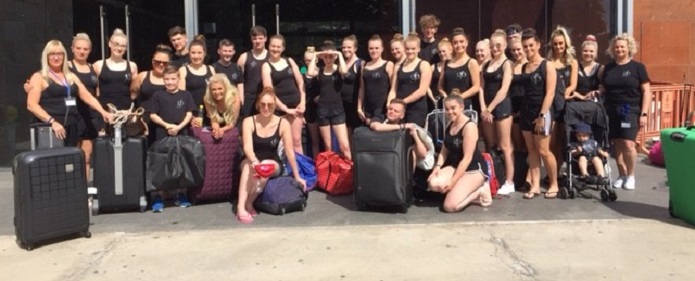
Overcoming educational and economic barriers to helping young learners achieve their potential
Morthyng Group has been striving to boost young people's employment prospects, helped by funding from Erasmus+ and its predecessor programmes, since 1997.
The Rotherham-based vocational education and training provider co-ordinates short-term placements in Belgium for construction and retail students and in Spain for performing arts students.
All activities have a particular focus on helping learners who face educational and economic barriers, which can often create limited employment opportunities, particularly for those seeking to become apprentices.
“This group tend to face difficulties in that they haven’t achieved significant qualifications at school, particularly in English and Maths,” said European manager Geoff Spinks. “They may have problems at home. Some are in sheltered accommodation.
"Our projects are based on work experience and giving young people opportunities to develop themselves to secure an apprenticeship."
Employability skills and more
Placements aim to give learners a real experience of the working environment - from stock control in retail, refurbishments in construction and musical performances in performing arts - thereby boosting their employability skills.

Students also attend sessions in Maths and English and get initial exposure to a new language and culture as well as completing risk assessments and health and safety inductions.
“Before their placement, we teach them basic language skills," said Geoff. While participants are away, they will then undertake activities and training that support their language learning.
"For example, in Belgium, they have to write a postcard in Dutch, which is then checked by a member of staff, and have a conversation with the staff at that level of language learning. They also use online tools to support their development.”
In addition, retail students are tasked with cost conversions using items found in their hosting shops, comparing the price in euros and Sterling.
These tasks not only support learners with immersion, but also add to their English and Maths abilities.
Development is tracked through log books, which participants complete during the placement, encouraging them to evaluate their own progress and recognise new skills they have developed.
While learners gain vital experience in their field of study, they also develop a range of soft skills such as team-working, confidence and independence – vital characteristics needed in employment.
Breaking down barriers
Despite placements being only two weeks long, the structure created by Morthyng Group and its partners helps to break down barriers for the young people.
“It’s fascinating because there’s certainly a major change in their outlook on life," said Geoff. “They present themselves better. They understand employment more easily because they’re actually in a working environment and meeting different people.”

Participants themselves also noted how they view life positively after their placements, Geoff added, with many wanting to gain more work experience in a different country.
They also described how their placements were a ‘talking point’ with prospective employers during subsequent interviews.
Results have certainly been positive, with 60 per cent of learners getting jobs and a further 20 per cent continuing into further education during 2016-17, according to Geoff.
Our projects are based on work experience and giving young people opportunities to develop themselves to secure an apprenticeship.
For the organisation itself, creating immersive placements is vital to helping young people start unlocking their potential.
“It’s down to socialisation and raising their awareness of the opportunities out there,” he said. “Many of these young people haven’t had these opportunities before and feel rejected. Our organisation has a culture where we focus on this group and move them forward.
“It’s interesting because some learners have issues at home, and many parents say afterwards that they've come back as a different person. It shows changes have certainly taken place as a result of the experience abroad.”
Long lasting partnerships
In order to create successful placements, Morthyng Group has worked hard on forging effective relationships with partners who work with similar groups of young people, some of which have lasted more than 30 years.
 “We’ve developed relationships which are based on trust," said Geoff. "Prior to any project taking place we visit to check things, meet socially and ensure a Memorandum of Understanding is signed.
“We’ve developed relationships which are based on trust," said Geoff. "Prior to any project taking place we visit to check things, meet socially and ensure a Memorandum of Understanding is signed.
“Developing a partnership can only be done by visiting your partners and analysing the nature of the place, the programme content and whether it’s deliverable.
“You also need to check your accommodation for safety and talk to your partners about the curriculum.”
Morthyng Group and their partners share new ideas and best practices with each other, from observation assessments to documentation on course units and qualifications. This type of communication, Geoff says, is critical for establishing a lasting partnership.
Thanks to the combination of Erasmus+ funding, fruitful partnerships and a commitment to young people, Morthyng Group are helping to broaden horizons. By developing the experience and skills needed for employment, learners are beginning their journey towards further opportunities.
Read more about how Erasmus+ has helped VET organisations on our stories webpage.
